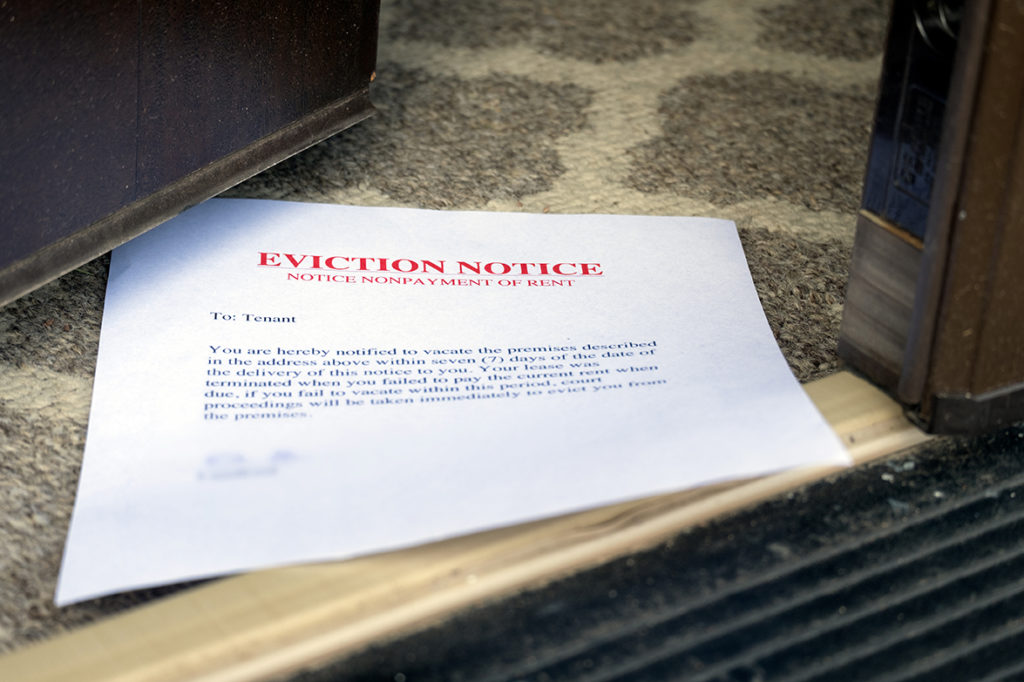According to a survey by buy-to-let broker Mortgages for Business, 33% of landlords are worrying about the scrapping of Section 21.
Under government plans, landlords will no longer have the right to evict tenants without giving a valid reason. Currently, landlords can use Section 21 of the 1988 Housing Act to evict tenants with two months’ notice after the end of a fixed-term tenancy.
The new legislation will create open-ended tenancies, meaning that landlords must provide a reason for eviction, such as rent arrears or antisocial behaviour. In order to evict, Landlords will have to provide solid evidence of the tenant’s shortcomings.
Plan Insurance can accommodate your Property Owners & Landlord Insurance needs. Just fill in our short call back form, and our professional brokers will be in contact to arrange your insurance.
What worries landlords the most?
The survey also revealed that a major concern for landlords is higher mortgage rates, with 63% of respondents citing this as a concern. The reform of Section 21 and energy performance certificate regulations and tax were both a concern of 32% of landlords.
Gavin Richardson, the managing director of Mortgages for Business, said that the reform of Section 21 is a driving force behind landlords not remortgaging and selling up. However, in his opinion, landlords have less to fear from the reform than they realise.
Richardson says tenants didn’t have to do anything wrong to justify a Section 21 notice
Richardson believes that Section 21 notices have been abused for years and have been used as a vehicle for ‘revenge evictions.’ According to Richardson the new legislation will disproportionately hit bad landlords who have been abusing Section 21.
Good landlords, he affirms, will largely be left alone, and good tenants will be protected from being turfed out at a moment’s notice.
Bad tenants can still be kicked off
Even after scrapping Section 21, tenancies can still be ended if there has been a breach of the tenancy by the tenant.
The government has also said that it will introduce a new ombudsman to settle disputes between tenants and landlords, eliminating the need to go to court. The government has also promised to ‘digitise’ the courts’ agenda ahead of proceedings, to ensure a fast resolution. This will hopefully speed up court processes for everyone concerned.
Landlords will still be able to end a tenancy if they plan to move back in or sell it.
One of the biggest fears for landlords is that by scrapping Section 21, the government will leave landlords to be held to ransom by their tenants. Experts like Richardson assert that this won’t be possible, even if Section 21 is no more.
The loss of full tax relief on mortgage interest payments, the stamp duty surcharge on additional property purchases, and the need to ensure properties meet energy efficiency rules from 2025 should be far bigger concerns for landlords in Richardson’s opinion.
Is this all the government trying to cosy up to tenants?
Many commentators believe that politicians are irresponsibly trying to gain favour with tenants and that the country at large will suffer as a result. Making things harder for landlords will lead to a dwindling of the already small property stock, in the end making it harder for tenants.
“Of the big concerns raised by the business people working in this entrepreneurial sector, the government is responsible for all of them — from Kwasi Kwarteng’s catastrophic mini-budget smashing up rates to new EPC legislation and the changes to the way the Private Rented sector is taxed,” says the MD of Mortgages for Busines.
Interest rates to fall, inflation isn’t going anywhere
Interest rates in the UK and US have risen again, with the Bank of England raising rates to 4.25%. Despite the recent rate hikes, UK mortgage rates have dropped back over the last three months from the highs seen at the end of 2022, with the average 5-year fixed rate mortgage for a 75% loan to value (LTV) mortgage falling to 4.38% from a high of 5.6% last October.
The relationship between mortgage rates and interest rates is complex, as banks use a blend of sources to price mortgages. The cost of fixed-rate finance is influenced by where markets believe interest rates will go over the period the money is secured for. While base rates might go up in the short term, if the view is that inflation will slow quickly and interest rates will fall, SWAP rates may be lower than base rates.
Although borrowers on variable rate mortgages will see mortgage rates increase as the Bank of England raises rates, for the majority on fixed-rate loans, there will be no change.
Mortgage rates for new business are expected to sit between 4% and 4.75% for much of 2023, which means the average buyer will face an increase of £200 to £500 a month more in mortgage repayments than at the start of 2022 when mortgage rates were much lower.
Despite talk of a hefty price correction in home values, demand for homes still appears stable, just at a slightly slower rate. Though households will be resetting their plans in an environment of higher borrowing costs. So, for landlords looking to exit the market, if you price your property sensibly, the consensus is that it is likely to attract interest with a likelihood of negotiation on the final price. Overall, the increase in the base rate isn’t expected to make much difference to the outlook for the housing market.


